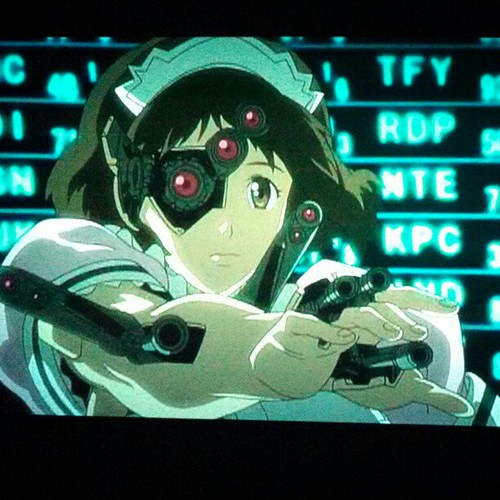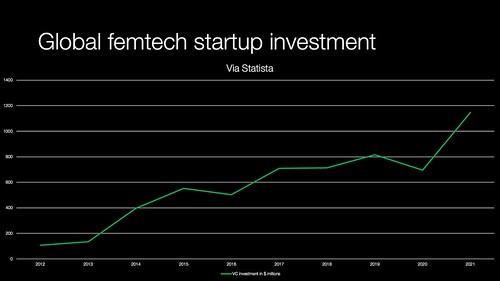4 minutes estimated reading time
It says something about the time that we live in that digital abortion clinics is a normal phrase and that publications like Wired have to have rank the clinics on patient data security. Disclaimer: I lean pro-choice in my beliefs as I don’t have to make the kind of choices that many women have to. Secondly, the second order consequences of high risk procedures done the black market create new moral and ethical dilemmas.
Dystopian vibes
Five years ago, if you had said digital abortion clinics to me it would have brought to mind the darker recesses of the cyberpunk realms created in novels by William Gibson or Neal Stephenson’s Snow Crash, or the Ghost In The Shell series of manga and anime created by Shirow Masamune.
The reality is more banal and horrifying all at the same time.
How we got here
Legal and regulatory environment
Family planning clinics that provide terminations have been under regulatory attack since the US Supreme Court ruling on Roe vs. Wade gave American women access to abortion in 1973. Roe vs Wade was challenged repeatedly in court and upheld in rulings given afterwards. Some of these rulings narrowed the definition of what procedures could be conducted and when they could be conducted. In June 2022, the US Supreme Court overturned Roe vs Wade with its finding on Dobbs vs Jackson Women’s Health Organisation. Abortion was no longer considered a constitutional right, which then meant pregnancy terminations became governed by a myriad of state laws both for, and against abortions.
Some states went as far as to provide a legal shelter for their medical staff against legal measures out of state.
Pharmaceuticals
Historically, medicinal herbs and drugs used to induce an abortion risked causing kidney and liver damage. But we now have drugs available that can provide a much safer alternative. It’s these drugs that the digital abortion clinics rely on. The two most common are:
- Misoprostol was developed in 1973. It’s used to induce abortions, but also has other uses including the prevention and treatment of both stomach ulcers and some forms of postpartum bleeding. It can also be used to induce labour during pregnancy.
- Mifepristone developed in 1980, is typically used to induce abortions in conjunction with Misoprostol. It is also used on its own to treat high blood sugar levels in patients who also have hypercortisolism.
Femtech
Femtech as a term has only been around since 2016, but investment in the area of women’s health related technology has been growing over a decade. A few things were driving this. The personal nature of smartphones as a device. The explosion in software tools that allowed you to write apps and the availability of wireless technology stacks that hardware easier to connect. Finally, countries like the US started working on data privacy standards in the health space which were very important.
2016 saw Nurx get funding for it to provide in-app ordering for birth control pills. So prescribing abortion inducing medications is a logical next step, in order to give women full control of their reproductive capabilities.
Telehealth
COVID-19 accelerated the normalisation of digitally mediated health services including telehealth consultations and digital abortion services are now exception. If a woman chooses to have an abortion, it’s a big decision and the popular apps covered by Wired seemed to have a wide variance of user experience / provision of care.
These clinics operate in different ways—some provide live video visits with doctors and nurse practitioners, while others offer asynchronous counseling—but many have experienced a record number of patient orders (and increased VC funding) over the past year.
Poli K. (August 21, 2023) The Most Popular Digital Abortion Clinics, Ranked by Data Privacy. United States: Wired magazine
Security issues
Those software tools that allowed apps to be written easily often included API calls that enable privacy infringing tracking. For instance, a byproduct of the software tools used to make LGBTQI dating app Grindr’s locative nature risked exposing precise location data of gay men. Which is of concern in more socially conservative environments. Women using some digital abortion clinics face similar challenges.
In US states, where the politicians thought that Margaret Atwood’s The Handmaid’s Tale was a how-to guide, rather than a societal warning; prosecutions in abortion related cases are using mobile data and search history.
Wired worked with the University of Texas privacy lab to grade the post popular digital abortion clinics on the degree of risk they posed to their patients.
The results were concerning and these problems can’t be mitigated through the use of a VPN or in-app settings.
Third-party data app sharing and data collection were used by the likes of Palantir to aid targeting people of interest in the global war on terror (G-WAT in security circles), and could be used in a similar way against women, if the state government were so inclined.
The Wired article that inspired this post here. More health-related content here.


